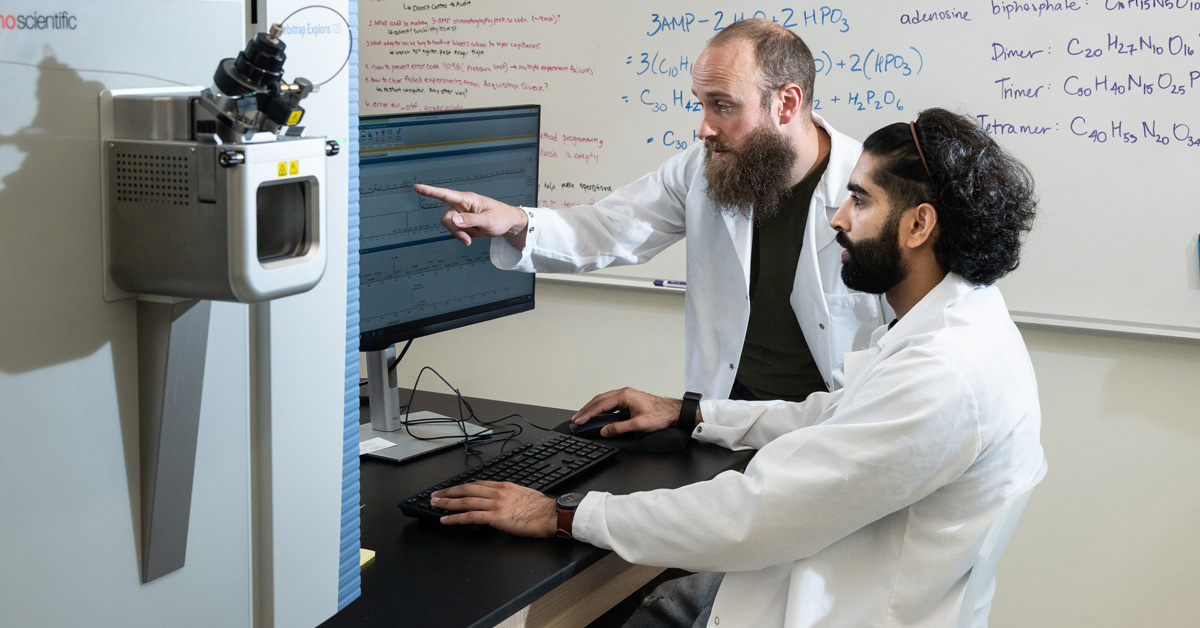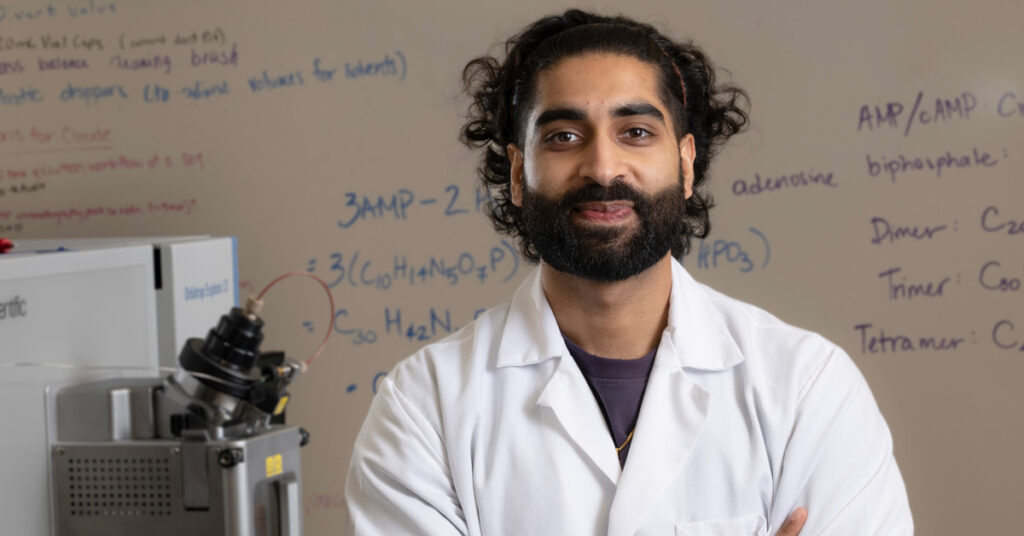Exploring the chemistry of celestial bodies

Ishaan Madan ’22 wins NSF research grant
Ishaan Madan’s quest to gain new insight into the chemistry behind the origins of life recently received a major boost with a grant from the National Science Foundation. The 2022 Wheaton graduate, now a Ph.D. candidate in planetary science at Purdue University, has earned a competitive Graduate Research Fellowship to help fund his research.
Madan’s work examines the emergence of life on Earth and the conditions needed for it to arise beyond our planet from a chemical perspective. “I look at it from a lens of computational chemistry, so I create models and run simulations to figure out whether certain chemicals will form based on the starting material that’s available,” he explained. “I do this for different environments in our solar system.”
Moving forward, most of Madan’s research will be focused toward Titan, Saturn’s largest moon. “It’s a very interesting place,” he said. “We think there’s some really cool chemistry happening there that was also occurring early on Earth. It’s like a natural lab to be explored.”
Part of the research is aimed to support NASA’s Dragonfly mission to Titan in the next decade. “I hope my research will provide some guidance about what kind of chemicals that they can expect to potentially find on the surface when they get there.”

He first trained his attention on the larger planets of our solar system as a Wheaton student. He participated in research with Professor of Geology Geoff Collins, who studies how geology works on the ice-covered ocean worlds of the outer solar system, and what geology can tell us about the possibly habitable environments within those alien oceans.
“Geoff Collins was one of the most influential people in my Wheaton journey. I did my very first research project with him,” he said. Professor Collins also helped the biochemistry major with his senior thesis and graduate school application. “He’s an authentic human being and a beautiful soul.”
While at Wheaton, Madan won a Barry Goldwater Scholarship, a national award in the natural sciences, engineering and mathematics that support undergrads who show exceptional promise in becoming research leaders in these fields.
Instead of pursuing research right after graduating, Madan chose to gain some financial stability by taking a job with Epic, the largest electronic medical records company in the United States. A year and a half into his position of maintaining oncology software, he longed to get back into the sciences.
After resigning, Madan traveled abroad for six weeks to complete a research project he had been collaborating on with a colleague. “That focused on trying to study alternative forms of chemistries that might be occurring in Venus’s atmosphere,” he explained. “We examined how certain analogs of chemicals used by microscopic life may form in places away from Earth.”
To continue his education and return to research, Madan followed the recommendation of a mentor and chose Purdue University, where he is fulfilling his desire to work with Dr. Ben Pearce. Pearce’s research aligns with the questions that Madan aims to explore about the chemistry of life on Earth and its potential to exist beyond.
Last fall, Madan started at Purdue, where he received a university fellowship to fund his research for the first two years of his five-year Ph.D. program. The NSF fellowship will provide funding for the following three years at a value of approximately $160,000.
“With the NSF support, I can focus my attention on my research, which is such a privilege,” he said. “I don’t have to do any TA [teaching assistant] duties, unless I choose to.”
Madan is thankful for and feels blessed by the support to continue his passion for research while determining what his future holds.
“I’ve always been driven by curiosity for space and a desire to do meaningful work that helps humanity,” he said. “Whether I stay in academia, work in space research, or build something of my own, this award gives me more agency in choosing a path aligned with my values.”
